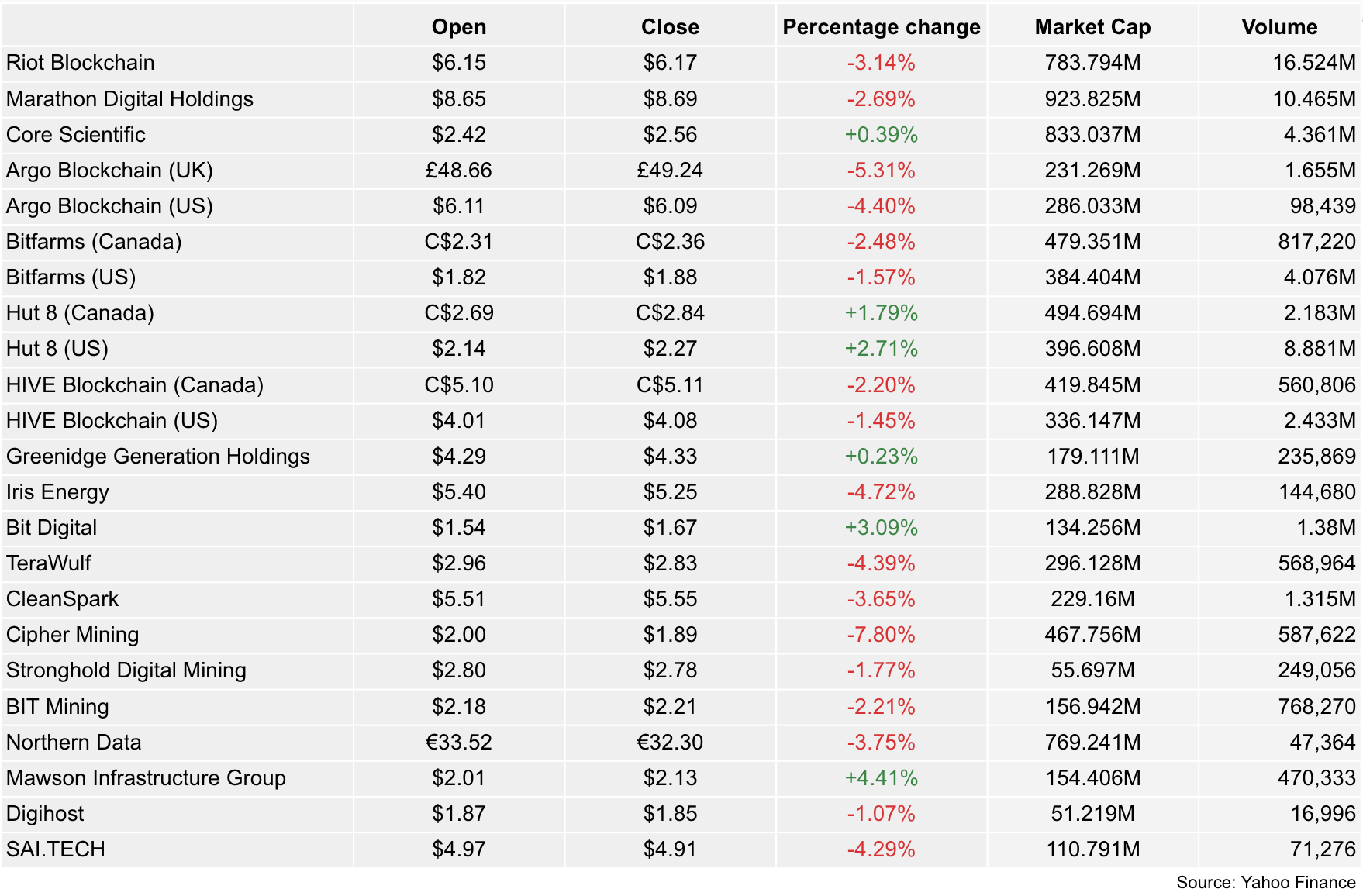Episode 50 of Season 4 of The Scoop was recorded remotely with The Block’s Frank Chaparro and Fred Thiel, Chair and CEO at Marathon Digital.
Listen below, and subscribe to The Scoop on Apple, Spotify, Google Podcasts, Stitcher or wherever you listen to podcasts. Email feedback and revision requests to podcast@theblockcrypto.com.
Marathon Digital produced a “record” 1,259 bitcoins during the first three months of 2022. Yet the US-based bitcoin mining firm reported a Q1 net loss of $13 million, largely due to the decline in bitcoin’s price since last year’s highs.
Despite falling short on revenue estimates, Marathon CEO Fred Thiel claims that the current cost for his company to produce one bitcoin via mining is “about $6,250,” giving the firm plenty of margin before they would need to consider scaling down their operation.
In this episode of The Scoop, Fred Thiel sits down with host Frank Chaparro to discuss the intricacies of effectively managing a bitcoin mining company, along with Marathon’s growth over the years.
As Thiel explains during the interview, there are three main considerations when it comes to operating a bitcoin mining company:
“There are really three things we worry about: the price of Bitcoin, the cost of power, and our ability to deploy and then access hardware. Capital is important, too, but those are the three KPIs we look at all day long.”
While the price of bitcoin will always be prone to fluctuation, the energy cost for bitcoin miners is typically predictable since it is purchased on long-term contracts. As Thiel explains:
“Just like the airline industry will hedge their fuel purchases by buying futures on fuel, when we write a hosting agreement, we are locking in a fixed price for five years. So our cost of hosting, which is energy hosting, services, etc., is locked in a little over $0.04 a kilowatt hour for five years. And our energy provider has to take out the hedges to make sure that they’re not upside down on the energy cost.”
The third consideration — the ability to deploy and access hardware — is often a bottleneck for Marathon, because the company has to wait on government bodies to approve operational permits.
During this episode, Chaparro and Thiel also discuss:
- Renewable energy and mining operations
- Weather’s impact on bitcoin mining
- NY State’s new mining regulation
This episode is brought to you by our sponsors Fireblocks, Coinbase Prime & Cross River
Fireblocks is an enterprise-grade platform delivering a secure infrastructure for moving, storing, and issuing digital assets. Fireblocks enables exchanges, lending desks, custodians, banks, trading desks, and hedge funds to securely scale digital asset operations through the Fireblocks Network and MPC-based Wallet Infrastructure. Fireblocks serves over 725 financial institutions, has secured the transfer of over $1.5 trillion in digital assets, and has a unique insurance policy that covers assets in storage & transit. For more information, please visit www.fireblocks.com.
About Coinbase Prime
Coinbase Prime is an integrated solution that provides institutional investors with an advanced trading platform, secure custody, and prime services to manage all their crypto assets in one place. Coinbase Prime fully integrates crypto trading and custody on a single platform, and gives clients the best all-in pricing in their network using their proprietary Smart Order Router and algorithmic execution. For more information, visit www.coinbase.com/prime.
About Cross River
Cross River is powering today’s most innovative crypto companies, with banking and payments solutions you can rely on, including fiat on/off ramp solutions. Whether you are a crypto exchange, NFT marketplace, or wallet, Cross River’s API-based, all-in-one platform enables banking as a service, ACH & wire transfers, push-to-card disbursements, real-time payments, and virtual accounts and subledgers. Request your fiat on/off ramp solution now at crossriver.com/crypto.
© 2022 The Block Crypto, Inc. All Rights Reserved. This article is provided for informational purposes only. It is not offered or intended to be used as legal, tax, investment, financial, or other advice.
Go to Source
Author: Davis Quinton and Frank Chaparro


